Introduction:
Khwaja Nazimuddin, a rich proprietor and a nephew of Nawab Salim Ullah, resulted from the Nawab group of Dhaka. His reality had the thin limits of the primitive, honored. He had raised if not destined to lead Muslim Bengal but since of his experience; he was a time misplacement in Bengal politics and its goal. His native language had Urdu, and Bangla was the least known to him. Khawaja had the child of Khwaja Nizamuddin and Nawabzadi Bilkees Bano and was hooked to Shah Bano. A girl of Khwaja Ashraf, in 1924. PM Nazimuddin wouldn’t oblige and Governor-General Malik Ghulam used safe powers. He conceded in the Government of India Act 1935, excused Prime Minister Nazimuddin. Here, we discuss Biography of Khawaja Nazimuddin former Prime Minister.
He was the most brilliant and actual individual from the Dhaka Nawab family. He passed on 22 October 1964and lies covered next to the graves of Fazlul Haq and Suhrawadi on the grounds of Dhaka High Court. Their tomb has known as the Mazar of three public pioneers [1].
| Basic Information | Khawaja Nazimuddin |
| Nationality | British India (1894 – 1947), Pakistani (1947–1958). |
| Date of Birth | 19th July 1894 |
| Place of Birth | Dacca, Bengal, British India |
| Residence | Dacca, Bengal, British India |
| Date of Death | 22nd October 1964 |
| Place of Death | Dacca, Pakistan (Now in Bangladesh) |
| Age | 70 years old. |
| School | Dunstable Grammar School in England |
| College | MAO College of the Aligarh Muslim University (AMU) in Uttar Pradesh, India |
| University | BA degree in sociology from AMU, MA degree in English at Cambridge University |
| Doctorate | Degree of Doctor of Laws by the vice-chancellor of Dhaka University |
| Famous for | 2nd Governor-General of Pakistan, 2nd Prime Minister of Pakistan, Chief Minister of East Bengal, Prime Minister of Bengal, President of Muslim League. |
| Profession | Barrister, Politician |
| Works in | Pakistan Muslim League (1947 – 1958), All India Muslim League (1922 – 1947) |
| Government | 1945 – 1954 |
| Awards | Order of the Indian Empire |
Early Life and Education:
Khawaja Nazimuddin was born on 19th July 1894. KCIE was a Bengali traditional lawmaker. One of the main establishing fathers of Pakistan. He has noted similar to the primary Bengali head of Pakistan, who managed the nation first as the Governor-General (1948–51) and later as the Prime Minister (1951–53) [1].
Khawaja Nazimuddin had an implausible family. He had wealth that modern him from the scraped area against the sound world. Khawaja Nazimuddin had the training from the praised colleges and a developed brain. A mix of eastern and western reflections and thoughts. His character had a coordinated entire made of apparently unique features. Khawaja was born as blue-blood, however; Khawaja remained independently liberated from the breaks and errors related to the landed nobility. Khawaja was a man of confidence and loyalty, veracity and gravity, courtesy, and effortlessness. Actually, to him, the word was an honor. He had an incredible love for Islam and its customs. There was not a hint of pride or haughtiness in him [1].
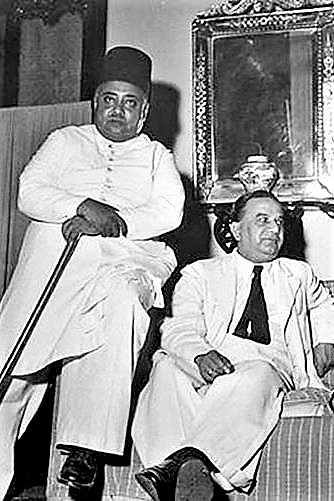
Entrance Into the Government:
Khwaja Nazimuddin entered governmental issues earnestly, appropriately instructed, and prepared for it. The legislative issues he pronounced and rehearsed were perfect and reasonable. He realized how to win and how to lose with effortlessness. In political life, two characteristics, consistency, and dedication, recognized him. His political confidence and stand were throughout steady. He continually kept these twin destinations before him.
However, he was a decent man, yet not very committed or solid. Khawaja was straight in governmental issues, however unable. He had constantly been known to be a powerless and worried man. His sibling Khwaja Shahabuddin should be the mind behind him. However, his obstacle in lawmaking issues was his honorability which, joined with the delicate quality of his personality. However, his obvious gravity covered his self-uncertainty and deficiencies [1].
Khwaja Nazimuddin’s Reliability and Responsibility:
Khwaja Nazimuddin was a less shining, however one of the most famous figures in the political history of Pakistan in its developmental stage. He had a place with the uncommon variety of lawmakers, against whom never a solitary charge of shame or abuse of intensity leveled, anyhow after his long visit in open workplaces. His absolute reliability and responsibility, genuineness, and honorability of heart were the praised highlights of his character and legislative issues. Even though he was hesitant, less-effective, less-intense, and less-aspiring head. His impediment ends up being the value of his determinations in high political workplaces [1].
Company of Quaid-e-Azam and Other Political Leaders:
He had the sound presence of mind regarded for his property, old-world civility, and accommodation, and was steadfast in his unwavering ness to the Quaid-e-Azam and dedication to the reason of Pakistan. Throughout his political life, he stayed determined, faithful to his political association, his chief, and his partners.
He stayed an individual from the Muslim League from the first till the most recent days of his political profession. It has known and set up the certainty that he was among the most dedicated partners and stalwarts of the Quaid-e-Azam and Pakistan Movement. Quaid-e-Azam consistently confided in Nazimuddin and had him firmly connected with the Simla Conference, just as the conversations with the Cripps and the Cabinet Mission. He appeared throughout his political vocation that the undaunted unwavering ness could expect attractive compensations from their thankful experts [1].
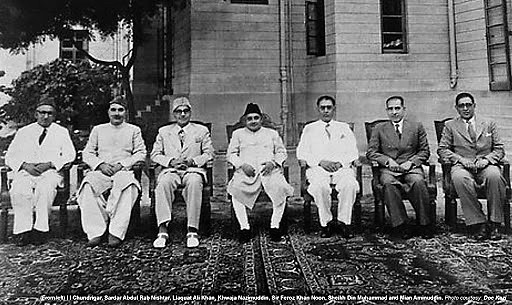
Family of Nazimuddin:
Nazimuddin had a place with a world-class family and he loaded his life with distinction and wins, however more than that all his vocation was outstanding for the honorability of his heart and direction. The various triumphs, he scored and the most noteworthy workplaces just as titles of significant privilege which had presented on him directly from 1922 to 1953. It was the mid-twenties when Nazimuddin began his profession as chairperson of the Dhaka Municipality in 1922, a position he held till 1929. During that time, he was additionally a member of the Executive Council of Dhaka University. For his skilled work at both these foundations, in 1929 he has delegated a Member to the Governor’s Executive Council.
He kept on serving in this limit till 1937. He had chosen as a Member of the Bengal Legislative Assembly from Barisal Muslim voting public in 1923, 1926, and 1929 and was the education minister of joined Bengal from 1929 to June 1934 and later as Minister for Agriculture. In the previous limit, he effectively guided the Compulsory Primary Education Bill; eliminating divergence that existed in training between the Hindus and the Muslims. As Minister for Agriculture in 1935, he steered the Agriculture Debtors Bill and the Bengal Rural Development Bill, which liberated helpless Muslim cultivators from the grip of Hindu moneylenders [1].
Khawaja Nazimuddin Entrance into the Muslim League:
Nazimuddin had related to the Muslim League from the mid-thirties and stayed attending with it till his last gasp. The Muslim League had re-sorted out in Bengal in 1935 by the excellence of the motivation given by the Quaid-I-Azam and the dynamic authority of Khwaja Nazimuddin. He was among the pioneers from Bengal to react to the Quaid-e-Azam’s call to redesign the Muslim League in Bengaline groundwork for the prospective general appointment of 1937. From that point forward he has been one of the most faithful lieutenants of the Quaid-I-Azam and one of the most passionate allies of the Muslim League.
He had been a determined and reliable Muslim League. His capable initiative hosted brought all the diverse Muslim gatherings under one stage, aside from that of Fazlul Haq and his Krishak Praja Party. His refusal to join the Muslim League implied a specific division of the Muslim votes which would have been lethal for them. To evade this disaster at the hour of political decision in Bengal, the two gatherings United Muslim Party and New Majlis Party converged in Muslim League to frame political decision collusion. Hence, the Muslim League had developed as the single biggest gathering in the political decision [1].
The Election of 1937:
In the Election of 1937, Fazlul Haq, the KPP pioneer, crushed Nazimuddin as ML applicant in the Patuakhali body electorate. However, later, he won from the North Calcutta voting public emptied by Suhrawardy. Yet, his initial thrashing so profoundly influenced him that later he evaded challenging races. He neglected to rise as a mass and famous pioneer, rather he focused his energies to oblige his political bosses.
In 1937 he had delegated Home Minister in Haq’s Coalition Ministry. On 1 December 1941, he left the Cabinet because of contrasts between Haq and Jinnah. Fazlul Haq had been forced out from the League and his Ministry route to another Ministry in alliance with the Congress individuals. During the Shyama-Haq Coalition (1942 to 1943), Nazimuddin went about as the Leader of the Opposition. On 24 April 1943, Muslim League shaped the Ministry with Nazimuddin as the Prime Minister on the fall of Haq Ministry on 28 March 1943 [1].
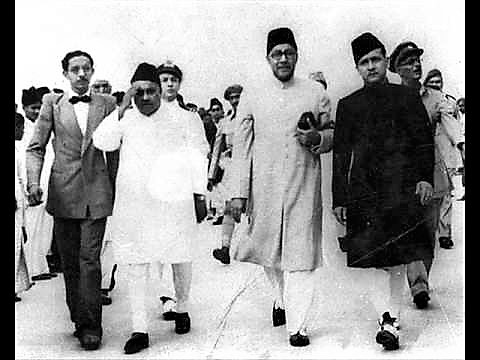
Conditions and Nizamuddin’s Cabinet:
The conditions were threatening. The ghost of starvation was expanding the reasonable in Bengal. Nazimuddin and his Ministry intensely challenged the circumstance and undauntedly set themselves to the errand of defeating the starvation. Because of the tricks of the resistance and the moving dedication of certain components, Nazimuddin’s Cabinet was done up on 28 March 1945 and he lost Chief Ministership to Suhrawardy. He stayed an individual from the All India Muslim League Working Committee from 1937 to 1947 [1].
Central Legislative Assembly:
In 1946, Nazimuddin had been chosen as an individual from the Central Legislative Assembly in New Delhi and named Deputy Leader of Opposition. That mirrored the trust and certainty gave on him by the Quaid-I-Azam at that exceptionally basic crossroads. Throughout this time of the battle, Nazimuddin stayed one of the Quaid’s confided-in associates. The country and the heads of the Muslim League remembered his genuineness to the reason for the Muslims of India and the Muslim League [1].
Chief Minister of East Bengal:
Inside the arrangement of Pakistan, he turned into a significant aspect of the early governments. He had selected as Chief Minister of East Bengal after the formation of Pakistan on 14 August 1947. In the challenge for administration, Nazimuddin had upheld as against Suhrawardy by the Central League authority. On account of Suhrawardy’s inclusion with the united Bengal movement, and his relationship with Gandhi [1].
Serving to the Country:
On two extraordinary and troublesome circumstances for the nation. Nazimuddin had called upon consistently to serve the country. In the death’s event of the Quaid-I-Azam in 1948, everyone considered him to be the most appropriate individual to possess the workplace of the Governor-General of Pakistan. He acknowledged the workplace as a test and turned into the subsequent Governor-General of the nation. As of right now, the position was to a great extent formal, and chief force rested with the Prime Minister, however, he played out his function as established Governor-General with pride and respectability. Also, when after the death of Liaquat Ali Khan in 1951, the bureau individuals from L. A. Khan collectively welcomed Nazimuddin to take over as Prime Minister.
Then, he had likewise chosen as an individual from Pakistan Constituent Assembly, just as the President of the Muslim League. He deserved the admiration and delighted in the certainty as Prime Minister, yet on 17th April 1953 had excused away from the constitution by Governor-General Ghulam Mohammad with the help of the common military organization and welcomed Mohammad Ali Bogra to frame the new service [1].
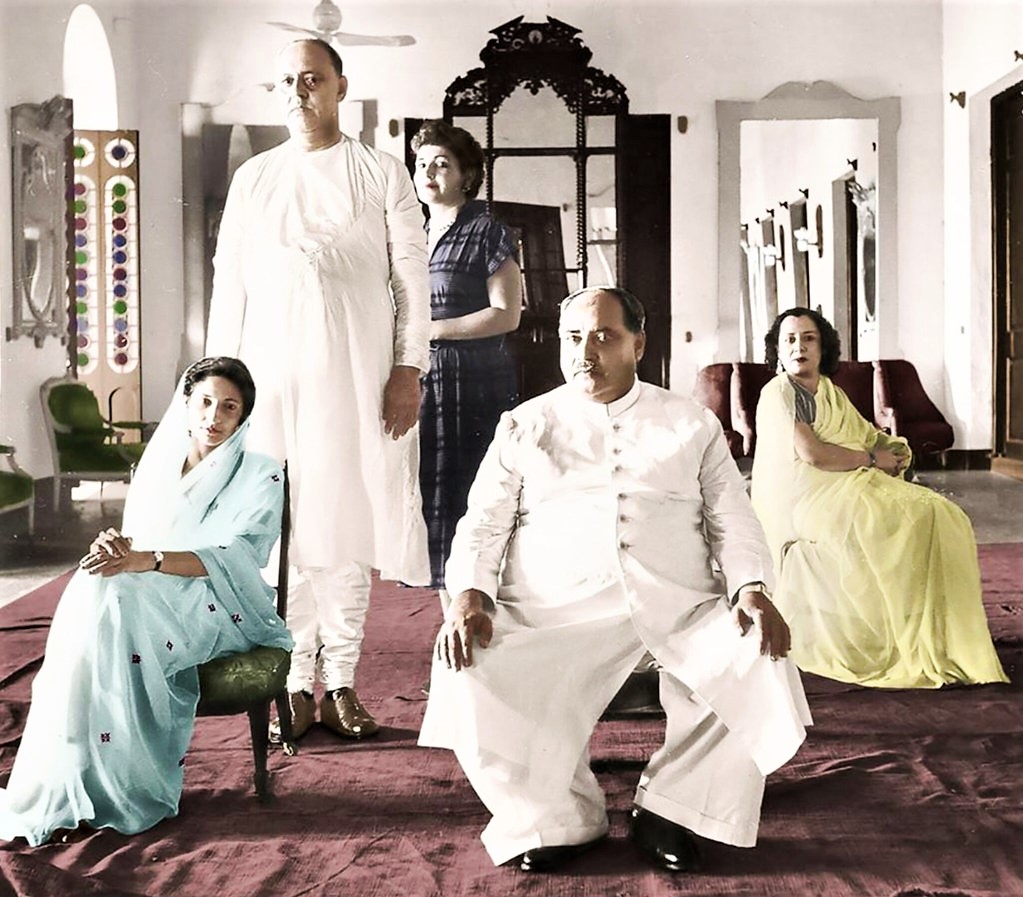
Ministership of Punjabi and Bengali Contention:
Many variables had added to Nazimuddin’s ouster from the Prime Ministership. The helpless condition of the economy, issues of protected, political, and international strategies, the Punjabi-Bengali contention, the counter Ahmadi development were a portion of the more significant reasons. The unlawful and undemocratic excusal of Nazimuddin as Prime Minister of Pakistan was a genuine hit to the improvement of the majority rules system in Pakistan [1].
Leaving to the Post of President:
In June 1953, Nazimuddin left the post of the Presidentship of the Muslim League and kept himself detached from dynamic governmental issues, and remained at the quiet region of his little girl’s home. In 1958, the title of Nishan-I-Pakistan was granted him. He abstained from governmental issues and drove the existence of retirement until 1962. However, in 1963 he got back to governmental issues and turned into the President of the Pakistan Council Muslim League. Khawaja committed his energies to the renewal of the Muslim League. He engaged hard for the rebuilding of the vote-based system and insurance of crucial rights and dismissed the domineering mentalities of Ayub’s system.
Khawaja was an incredible loyalist; he firmly opposed the secessionist propensities in East Pakistan at the expense of his ubiquity. He had the major influence in getting Miss Fatima Jinnah’s assent in turning out to be an official application of the resistance ideological groups [1].
The Foundation and Consistency:
With this foundation, he stayed a modest and devout individual for a mind-blowing duration and was rarely pompous. He encountered many lead points and low points in his political profession, yet he never lost his orientation and consistently maintained persistence. Khawaja was steadfast and devoted to his political supporters. He was a nobleman, second to none. His dependability was natural whether it was too British or the Muslim League. English enjoyed him for his primitive association and reliability and raised him to the lofty openings.
Muhammad Ali Jinnah and Liaquat Ali enjoyed his genuineness and commitment to the Muslim League and with their endowments, Nazimuddin came to the echelon of intensity in Pakistan. To Ghulam Muhammad, he was, notwithstanding, a “wasteful” and a “silly figure” of a man and as Governor-General, he mercilessly took him out from the Prime ministership [1].
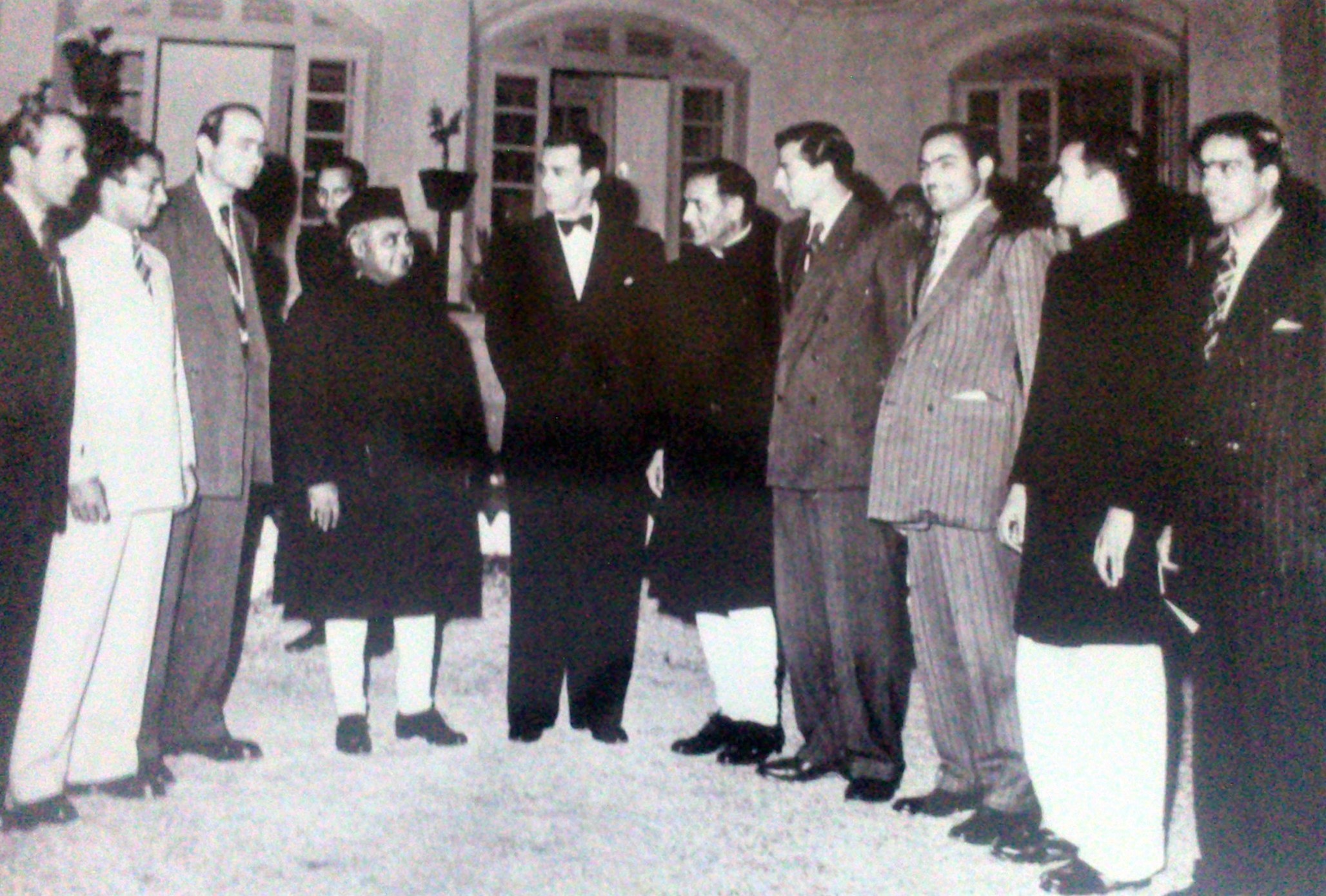
Governor General and the Prime Minister Liaqat Ali Khan:
Nazimuddin, given his presentation and nonattendance for Charisma. Showed a shameful replacement of Jinnah and Liaquat Ali Khan. At the point when he was the Governor-General, the force lay with the Prime Minister Liaquat Ali Khan. At the point when he turned into the Prime Minister, the force lay with the Governor-General Ghulam Muhammad. It appears power consistently avoided him and was never inside his grasp [1].
Man of History from the Nawab Family of Dhaka:
History will recall him as a courteous fellow and a man of good, however not incredible. His reliability to his political experts and his introduction to the world in the Nawab’s Family of Dhaka were the components of his prosperity. His loss of motion, of will to act even now and again, of crisis and his unremarkable character were the reasons for his disappointment. He did not have the charm of a pioneer and couldn’t entrance the general population. Most likely, he had his weaknesses, however; they were the deformities of his characteristics. He was very much aware of his imperfections yet was not ready to play filthy deceives just for power [1].
He was not ethically degenerate and force hungry, he never aimed or schemed for power, it presented to him as a prize of his devotion and truthfulness, while his political opponents used each dread and foul intends to get a power handle. Even though he came up short on the characteristics of a wise lawmaker, a thunderous and visionary pioneer, however, inhuman characteristics of devotion, genuineness, and nobility, he was outstanding [1].
Realpolitik Survivor:
Nazimuddin had a survivor of realpolitik. An amazing and yearning carriage of Ghulam Muhammad, Sikandar Mirza, and Ayub Khan sponsored by the common and military organization and the help of childish and self-driven government officials plotted against him and expelled him from power. His undemocratic and unlawful ouster from power ends up being calamitous for the vote-based system in Pakistan. His excusal was the seat sign of political corruption, insecurity, and mayhem, which eventually lead to the burden of the main Martial Law by Ayub Khan. The ascent of the undemocratic powers which had least worried about well-known desires prepared for the breakdown of Pakistan [1].
Death of Khawaja Nizamuddin:
Even after his excusal, he and his family stayed dynamic in parliamentary governmental issues; his nephew, Khawaja Wasiuddin, a military general filling in as GOC-in-C II Corps and later localized to Bangladesh in 1974. His more youthful sibling, Shahabuddin, stayed dynamic in the legislative issues and the end rose as Information serves in President Ayub Khan’s organization. Sir Khawaja passed on in 1964, matured 70. He had covered at the Mausoleum of three pioneers in his old neighborhood of Dhaka. [1]
Awards:
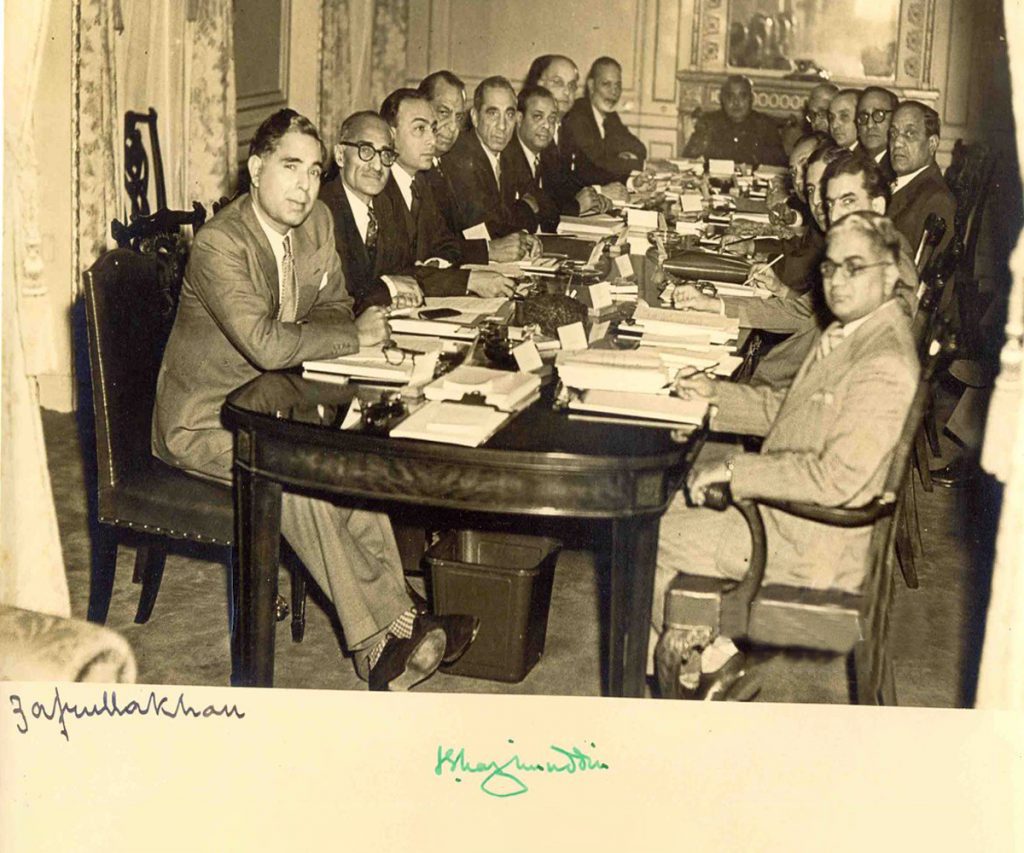
He had designated a Companion of the Order of the Indian Empire (CIE) in 1926. He had been labeled in 1934 by King-Emperor George V when he had named a Knight Commander of the Order of the Indian Empire (KCIE). In 1958 he had granted the most elevated nonmilitary personnel grant named Nishan-e-Pakistan. Later by the Government of Pakistan, Nazimuddin has been regarded now and again after his demise. In Karachi, the local locations, Nazimabad and North Nazimabad in rural areas of Karachi, had been named after his name. In Islamabad, there is a street crossing point, Nazimuddin Road, that has been named in his honor; while in Dhaka, there is likewise a street after his namesake. In his honor, the Pakistan Post gave a dedicatory stamp in agreement with his regard. [1]
References:
- historypak. 12th June 2021; Available from: https://historypak.com/khwaja-nazimuddin-1894-1964
2 Replies to “Biography of Khawaja Nazimuddin former Prime Minister | Our National Hero”